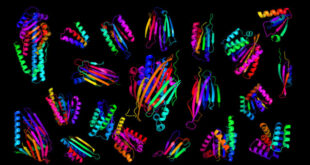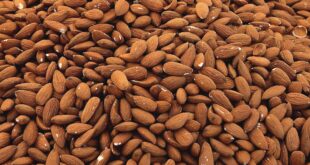Mid-day sleep significantly decreases systolic and diastolic blood pressure in people with arterial hypertension, according to new research.
Poulimenos et al found that people who took advantage of a mid-day snooze were more likely to have a noticeable drop in blood pressure compared with those who didn’t nap. Image credit: Pexels.
“Mid-day sleep appears to lower blood pressure levels at the same magnitude as other lifestyle changes,” said study co-author Dr. Manolis Kallistratos, a cardiologist at the Asklepieion General Hospital in Greece.
“For example, salt and alcohol reduction can bring blood pressure levels down by 3 to 5 mm Hg. A low-dose antihypertensive medication usually lowers blood pressure levels by 5 to 7 mm Hg, on average.”
“Our results are important because a drop in blood pressure as small as 2 mm Hg can reduce the risk of cardiovascular events such as heart attack by up to 10%.”
Dr. Kallistratos and colleagues prospectively studied 212 hypertensive patients. About 54% of the patients were female, the mean age was 62.5 years. The mean value of average 24-hour systolic and diastolic blood pressure were 129.9/76.7 mmHg respectively. Most of the subjects (74.6% of the sample) were non-smokers and didn’t have diabetes mellitus (74.6%).
The researchers assessed and recorded blood pressure for 24 hours consecutively, mid-day sleep time (the average duration was 49 minutes), lifestyle habits (for example, alcohol, coffee and salt consumption, physical activity levels), and pulse wave velocity, a measure of stiffness in the arteries.
Participants wore an ambulatory blood pressure monitor to measure and track blood pressure at regular intervals during routine daily living, rather than just one time in the clinic. At study recruitment, participants also underwent an echocardiogram, an ultrasound of the heart that shows its structure and function.
Overall, average 24-hour systolic blood pressure was 5.3 mm Hg lower among those who napped compared with those who didn’t (127.6 mm Hg vs 132.9 mm Hg).
When looking at both blood pressure numbers, people who slept during the day had more favorable readings (128.7/76.2 vs 134.5/79.5 mm Hg).
There also appeared to be a direct linear relationship between time asleep and blood pressure. For each hour of napping, the average 24-hour systolic blood pressure lowered by 3 mm Hg.
“We obviously don’t want to encourage people to sleep for hours on end during the day, but on the other hand, they shouldn’t feel guilty if they can take a short nap, given the potential health benefits,” Dr. Kallistratos said.
“Even though both groups were receiving the same number of medications and blood pressure was well controlled, there was still a significant decrease in blood pressure among those who slept during mid-day.”
The scientists will present their findings March 18 at the American College of Cardiology’s 68th Annual Scientific Session.
_____
Leonidas Poulimenos et al. Mid-day Sleep Effects as Potent as Recommended Lifestyle Changes in Patients with Arterial Hypertension. ACC.19, abstract #1332-439
 #Bizwhiznetwork.com Innovation ΛI |Technology News
#Bizwhiznetwork.com Innovation ΛI |Technology News




